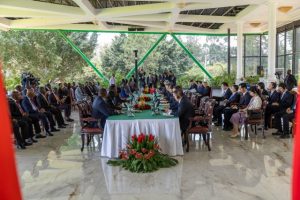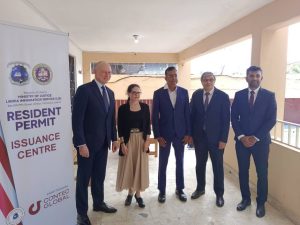Kenya hosts pioneering training on climate systems for Africa
The Ministry of Environment, Climate Change and Forestry has committed to cascade Climate Information Services (CIS) to subcounties in all the 47 counties, while tapping essential indigenous knowledge and co-producing climate information with local communities.
So far, only fifteen counties have developed their CIS Plans, representing 63pc of the national target, based on local needs and contributing to improved access and use of climate information at institutional and household levels.
According to Climate Change and Forestry Permanent Secretary Festus Ng’eno, the integration of climate information into planning and implementation has been supported through county-specific CIS plans prepared by KMD in collaboration with partners.
He spoke during the inauguration of the Training of Trainers Course on PUMA and ClimSA Systems in a landmark event for regional climate and meteorological development in Nairobi on Monday.
The program, attended by experts from across the region, aims to bolster Africa’s capabilities in weather observation and climate data management.
PS Ng’eno welcomed participants and emphasized Kenya’s honor in hosting this crucial training. “This platform unites a wealth of expertise, knowledge, and experience from across our region,” he noted, highlighting the importance of regional collaboration to address climate and weather challenges that increasingly impact African countries.
PS Ng’eno extended gratitude to the African Union Commission and the European Union for their support under the ClimSA (Climate Services and Applications) program, which has been instrumental in enhancing Kenya’s meteorological infrastructure.
Recently, new PUMA and ClimSA stations have been installed and upgraded at the IGAD Climate Prediction and Applications Centre (ICPAC), the Kenya Meteorological Department (KMD), and the World Meteorological Organization’s Regional Training Centre at the Institute for Meteorological Training and Research (IMTR).
These advancements mark significant milestones in Kenya’s climate response capabilities.
“EUMETCast Africa remains the continent’s primary mechanism for near real-time access to EUMETSAT satellite data,” said Ng’eno referencing the European Organization for the Exploitation of Meteorological Satellites (EUMETSAT).
He noted that with this support, PUMA and ClimSA systems will enhance the region’s access to high-resolution data from the latest Meteosat Third Generation (MTG) satellites. This access enables National Meteorological and Hydrological Services (NMHSs) across Africa to improve nowcasting and short-range forecasting, essential for anticipating critical weather events.
Ng’eno emphasized the importance of this upgraded capacity to sectors such as agriculture, disaster management, and public safety. “With higher-resolution and more frequent observations, we will improve our monitoring and response capabilities for extreme weather events,” he explained.
Reflecting on the urgency of climate change, Ng’eno acknowledged its local and regional impacts. “Climate change is no longer a distant concern; it is a reality affecting lives, livelihoods, ecosystems, and economies,” he said.
He cited recent extreme weather events such as prolonged droughts and intense flooding that have disrupted economies and daily life in the region.
He said that to address these escalating challenges, Kenya implemented the National Climate Change Action Plan (2023–2027), prioritizing technology and innovation in climate information services.
The PS commended the African Union Commission, EUMETSAT, and ICPAC for their unwavering support of Kenya’s meteorological initiatives. “The Ministry acknowledges the collaborative achievements that have enabled the provision of vital equipment and capacity-building resources,” he said, pledging Kenya’s continued partnership with these organizations.
Ng’eno also encouraged participants to make the most of the training, emphasizing the need to build on current progress, share insights, and create strategies that ensure the systems’ outputs are actionable and widely accessible.
The post Kenya hosts pioneering training on climate systems for Africa first appeared on KBC.
The post Kenya hosts pioneering training on climate systems for Africa appeared first on KBC.




